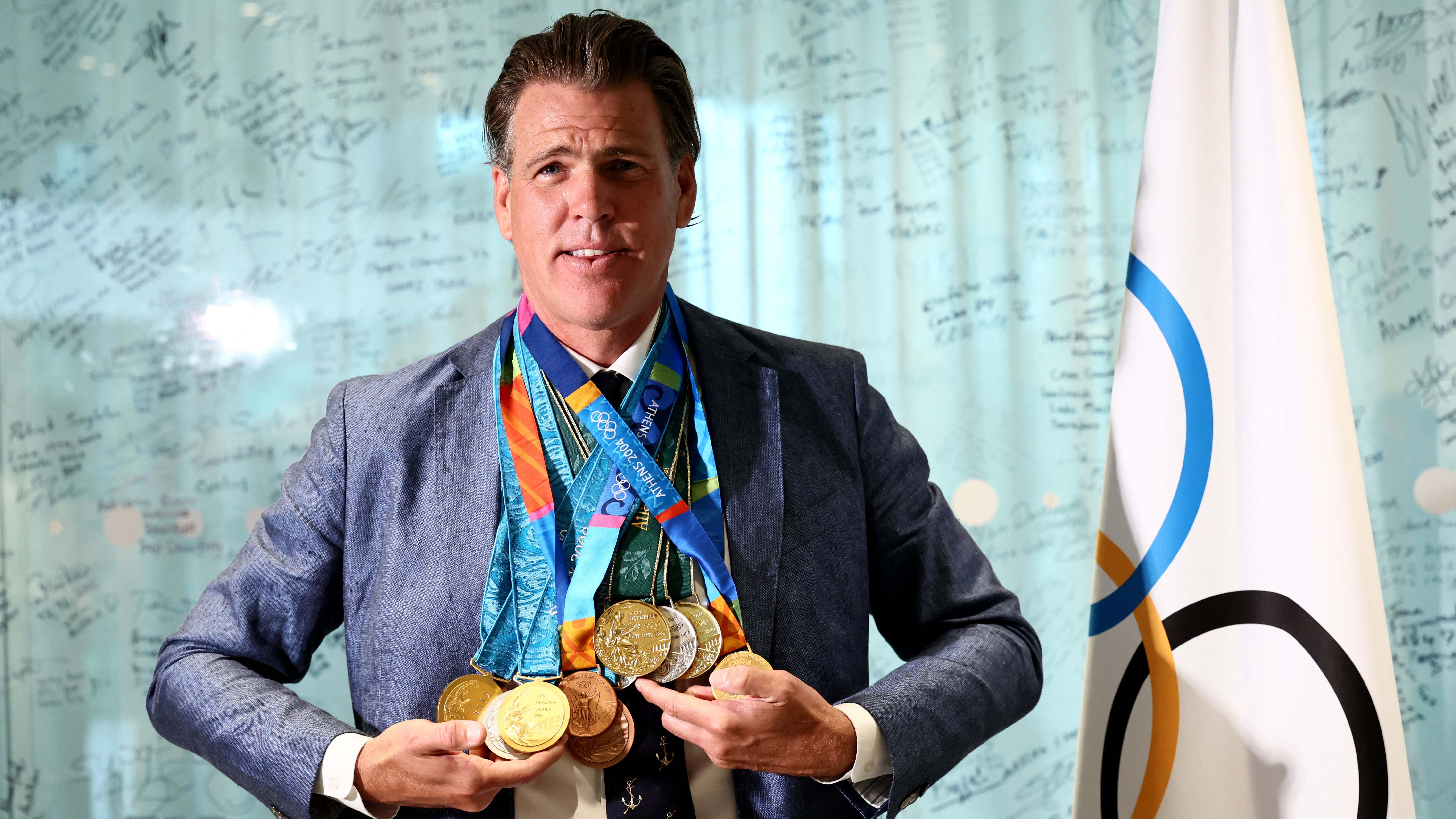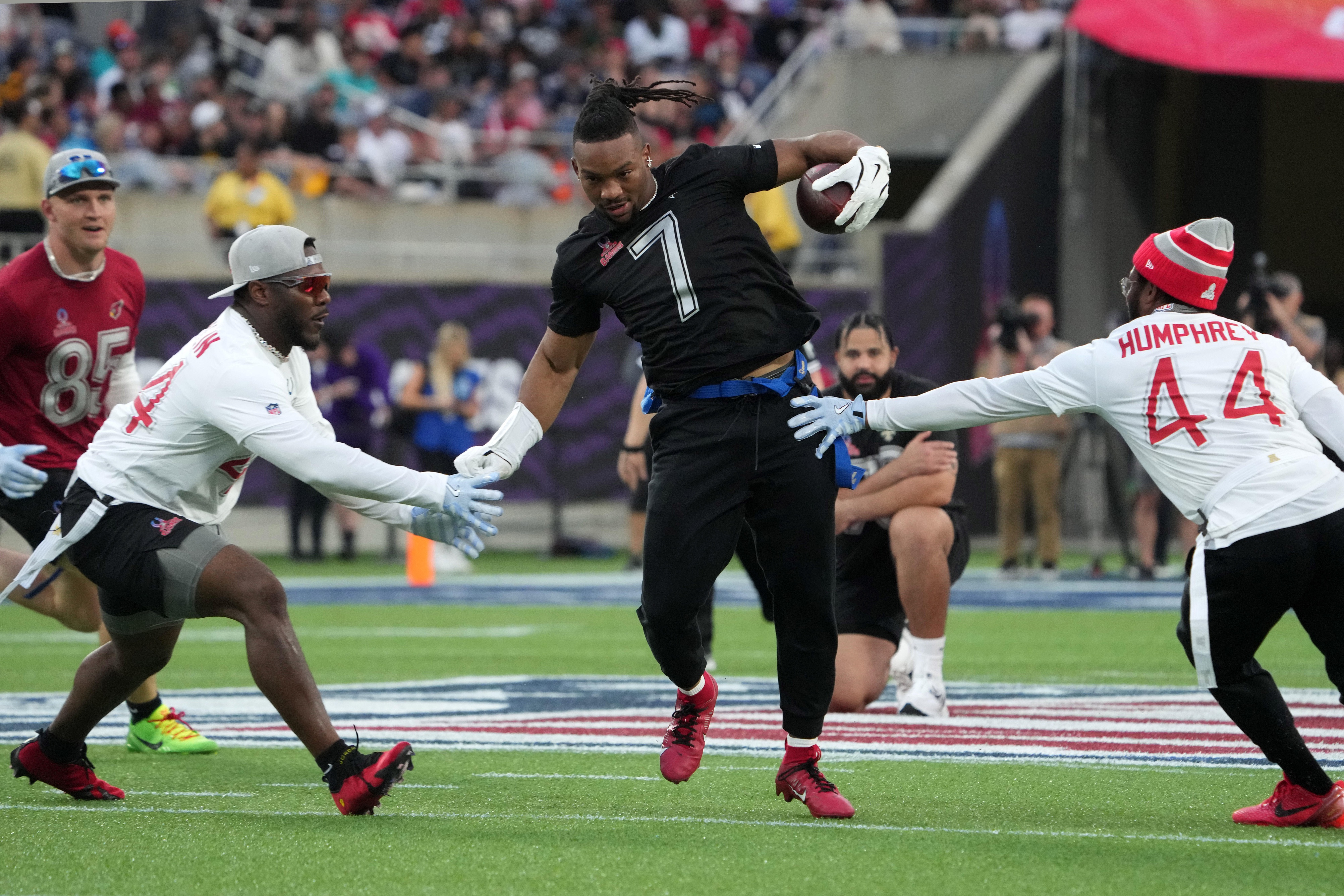Gary Hall Jr. Reclaims Olympic Glory After Wildfire Loss
From Ashes to Aquatics: Gary Hall Jr. Reclaims Olympic Glory After Wildfire Loss
Introduction: A Champion's Spirit Rekindled
Losing everything in a fire is a devastating experience. Imagine losing not just your possessions, but symbols of your life's greatest achievements. That's what happened to Olympic swimming legend Gary Hall Jr., whose precious Olympic medals were consumed by the ferocious Los Angeles wildfires. But this story isn't about loss; it's about resilience, recognition, and the unwavering spirit of an Olympian. It’s about how even when the flames take away the tangible, the intangible – the memory, the achievement – remains and can be honored. It's a testament to the power of the Olympic spirit, and in this case, the kindness of the International Olympic Committee (IOC).
Gary Hall Jr.: An American Swimming Icon
Before we dive into the heartwarming gesture of replacing the medals, let's remember who Gary Hall Jr. is. He's not just any swimmer; he’s a five-time Olympian and ten-time Olympic medalist! He’s a name synonymous with speed, power, and unwavering determination in the pool. Think Michael Phelps, but with a bit more swagger and a whole lot of patriotic pride. Hall competed in the 1996, 2000, 2004, and 2008 Olympics, leaving an indelible mark on the sport.
A Legacy Forged in the Pool
Hall’s career is a highlight reel of breathtaking finishes and record-breaking performances. He’s known for his rivalry with Australian swimming superstar Ian Thorpe, adding an extra layer of excitement to their races. His contributions to US swimming are undeniable, solidifying his place as one of the sport's all-time greats. He embodies the spirit of competition, pushing himself and his rivals to achieve greatness.
The Devastating Wildfires and the Loss of Olympic Treasures
The Los Angeles wildfires are a recurring nightmare for residents. These infernos can spread rapidly, leaving a trail of destruction in their wake. For Gary Hall Jr., the wildfires meant not only the loss of his home and personal belongings but also the heartbreaking disappearance of his ten Olympic medals. These weren't just pieces of metal; they were tangible representations of years of dedication, sacrifice, and triumph. How do you quantify the emotional value of something like that?
More Than Just Medals: Symbols of Triumph
For many Olympians, their medals are the culmination of a lifetime of hard work. They represent more than just winning a race; they signify overcoming obstacles, pushing limits, and achieving the seemingly impossible. Imagine the anguish of seeing those symbols, those physical representations of your proudest moments, reduced to ashes. It's a loss that goes beyond monetary value; it's a loss of history, of personal narrative. It's like losing a piece of yourself.
Thomas Bach and the IOC's Act of Compassion
Enter Thomas Bach, the president of the International Olympic Committee. Recognizing the profound significance of Hall's lost medals, Bach and the IOC took extraordinary action. They decided to replace all ten of Hall’s lost medals. This unprecedented gesture demonstrates the IOC's commitment to honoring the achievements and sacrifices of its athletes.
A Presentation in Lausanne: A Moment of Recognition
The replica medals were presented to Hall at the IOC headquarters in Lausanne, Switzerland. The ceremony was a symbol of respect and solidarity. It was a clear message that the Olympic community stands with its athletes, even in times of adversity. It was a poignant reminder that the Olympic spirit extends beyond the arena and into the realm of human connection and empathy.
Hall's Reaction: Gratitude and a Touch of Humor
Hall's response to receiving the replica medals was a mix of gratitude and his trademark humor. He acknowledged the exceptional nature of the gesture, quipping, "Thank you for the medals. Never before have 10 Olympic medals been replaced — probably because no one has lost 10 medals before." This lighthearted remark perfectly encapsulates Hall's personality – a champion who can find humor even in the face of adversity.
A Promise to Safeguard the Replicas
Hall also vowed to take better care of the new medals, stating, "I will do a better job at taking care of these." This pledge reflects his deep appreciation for the IOC's gesture and his renewed commitment to preserving his Olympic legacy. It’s a promise not just to protect the medals, but to honor the spirit they represent.
The Significance of Replica Olympic Medals
Some might argue that replica medals are not the same as the originals. And while that's true, the symbolism behind them is incredibly powerful. They represent the enduring nature of athletic achievement and the unwavering support of the Olympic community. They are a reminder that even when physical objects are lost, the memories and accomplishments they represent remain eternal.
More Than Just Metal: A Symbol of Hope
These replicas serve as a beacon of hope, demonstrating that even in the face of devastating loss, there is still room for kindness, generosity, and recognition. They are a testament to the human spirit's ability to overcome adversity and rebuild from the ashes.
The Impact on Gary Hall Jr.'s Legacy
This act of kindness from the IOC will undoubtedly further cement Gary Hall Jr.'s legacy. He will be remembered not only as a phenomenal swimmer but also as a symbol of resilience and grace in the face of adversity. His story serves as an inspiration to athletes and individuals alike, reminding us that even when life throws its toughest challenges our way, we can emerge stronger and more determined.
A Lesson in Perseverance
Hall's story teaches us the importance of perseverance, even when confronted with seemingly insurmountable obstacles. He demonstrates that true champions are not defined by their victories alone, but by their ability to bounce back from setbacks and continue to inspire others. He has shown that an Olympic champion’s mettle isn’t just forged in the pool, but in the fires of life.
The Olympic Spirit: More Than Just a Game
This event highlights the true essence of the Olympic spirit, which goes far beyond athletic competition. It's about fostering camaraderie, celebrating human achievement, and providing support to those in need. The IOC's gesture towards Gary Hall Jr. exemplifies these core values, demonstrating the organization's commitment to its athletes and the wider Olympic community.
Promoting Global Unity
The Olympics have always been a symbol of global unity, bringing together athletes from diverse backgrounds to compete in a spirit of friendly rivalry. This story further strengthens that ideal, showcasing the power of sports to transcend borders and connect people on a deeper level. This isn't just about swimming; it's about humanity, kindness, and the unwavering support we can offer one another.
A Lasting Reminder of Resilience
Ultimately, the story of Gary Hall Jr. and his Olympic medals is a powerful reminder of the importance of resilience, perseverance, and the unwavering support of community. It's a story that will continue to inspire generations of athletes and individuals alike, demonstrating that even in the face of overwhelming loss, the human spirit can triumph.
Conclusion: Rekindling the Flame
Gary Hall Jr.'s story is more than just a tale of lost and found medals; it's a story about the enduring power of the human spirit and the unwavering support of the Olympic community. The IOC's act of replacing Hall's medals is a testament to their commitment to honoring athletes' achievements and providing them with support in times of need. It’s a powerful reminder that even when flames consume the tangible, the intangible – the memories, the achievements, the spirit – remains and can be rekindled. Hall's journey is a source of inspiration, reminding us that even amidst devastation, hope and resilience can prevail.
Frequently Asked Questions
Here are some common questions about Gary Hall Jr. and his lost Olympic medals:
- How many Olympic medals did Gary Hall Jr. lose in the Los Angeles wildfires?
Gary Hall Jr. lost all ten of his Olympic medals in the wildfires. - Who presented Gary Hall Jr. with the replica medals?
International Olympic Committee (IOC) President Thomas Bach presented the medals. - Where did the presentation of the replica medals take place?
The presentation took place at the IOC headquarters in Lausanne, Switzerland. - Why did the IOC decide to replace Gary Hall Jr.'s medals?
The IOC recognized the significant emotional and symbolic value of the medals and wanted to honor Hall's achievements despite the loss. - What does Gary Hall Jr.'s story teach us?
His story teaches us about resilience, perseverance, and the importance of community support in overcoming adversity.

